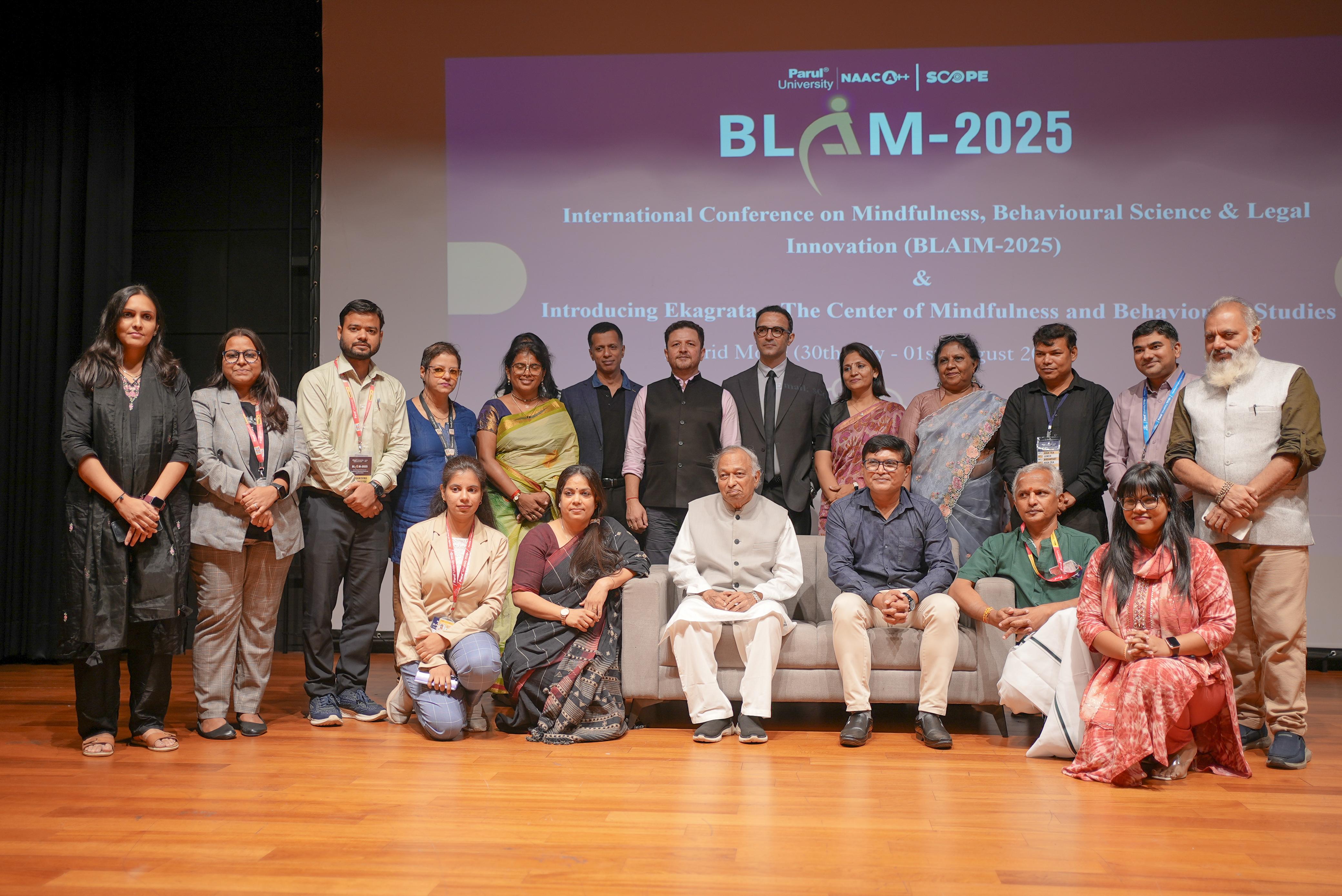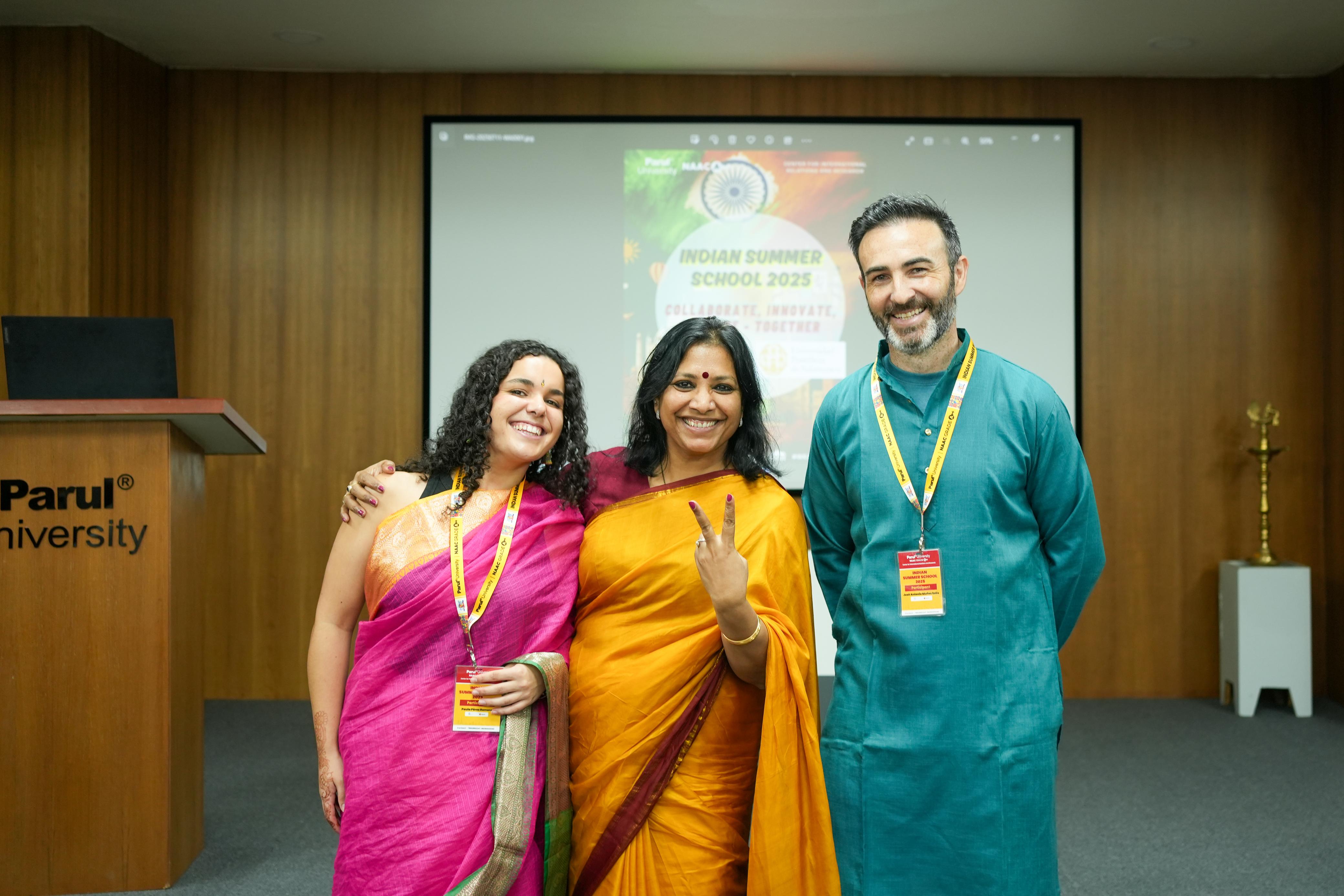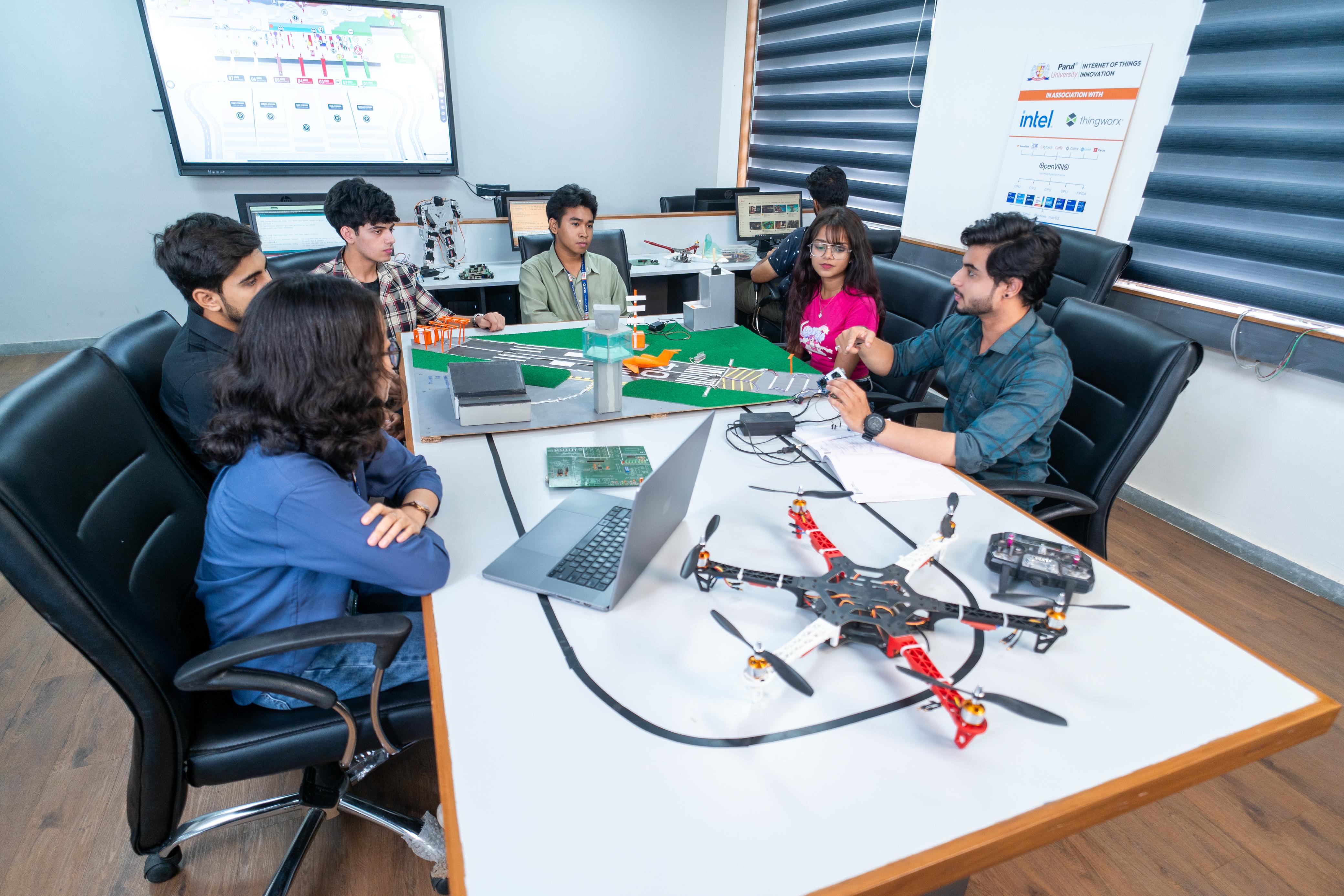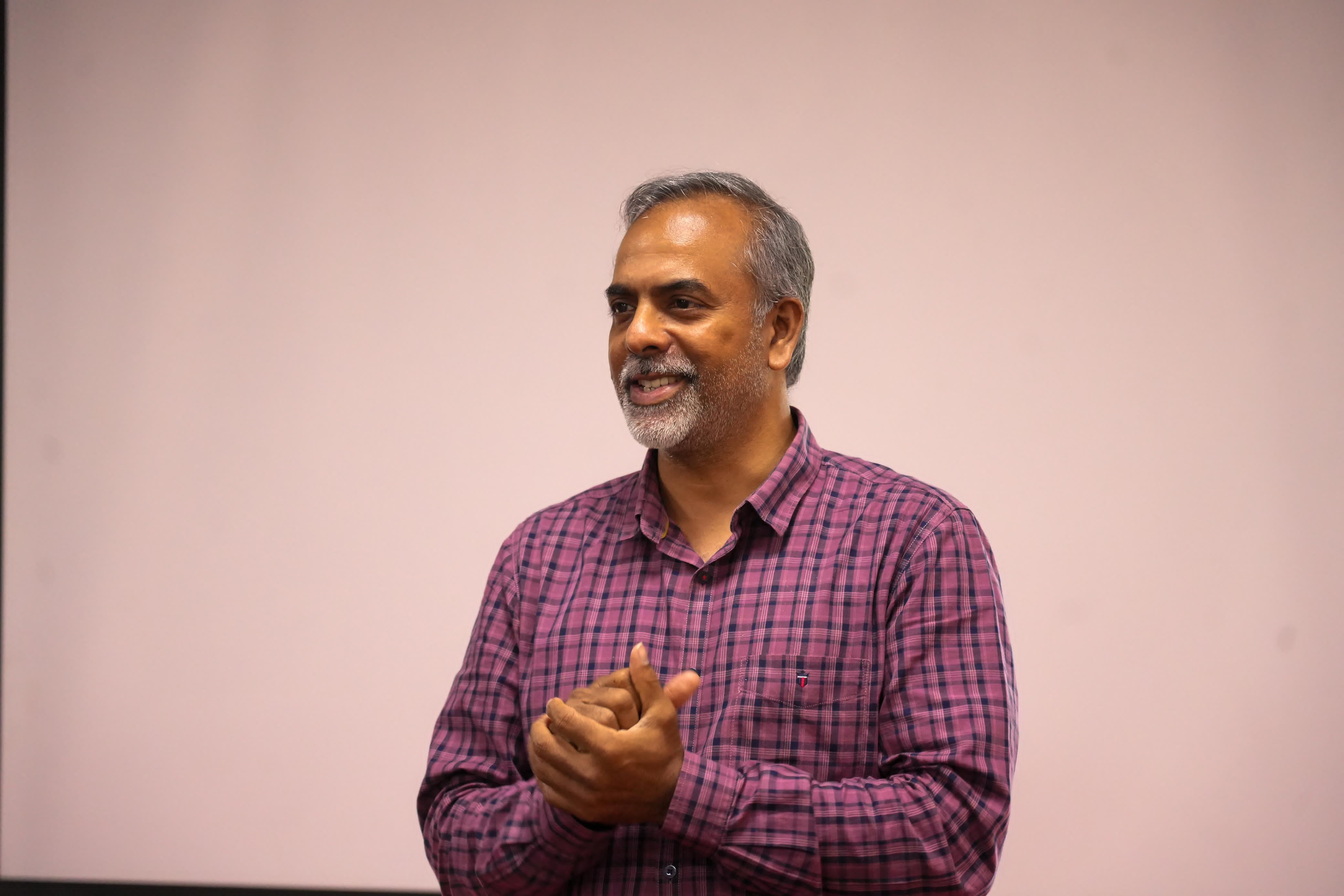The courtroom, which is viewed as the battleground of intense intellectual debate, is more significant than announcing the winners and losers. On July 26th, a powerful message resonated through Parul University, delivered by none other than Justice Mool Chand Tyagi, a sitting Judge of the Gujarat High Court. His address was not just a formality but a deep conversation about the practice of law in current India, in order to influence the minds of future lawyers.
Justice Tyagi, who has a long and illustrious career of serving justice with firm adherence, was made a member of the Gujarat High Court in May 2025, and he comes with a rich experience of his previous tenures in judicial service, as Registrar General of the Gujarat High Court and as the Principal District Judge of Anand. His experience highlights an in-depth knowledge of the complexity of the legal system in India.
Justice Tyagi commenced his expert talk, "The Art of Advocacy," with a poignant Shloka from the Bhagavad Gita, "Yada Yada hi Dharmasya...", setting the tone for a discussion that transcended mere legal technicalities. He underlined that advocacy in its essence is an expression of intellect, ethics, and justice, and an art of persuasive communication.
But in the dynamic world where things have started changing so fast, is persuasion sufficient?
He explored the many challenges facing contemporary advocacy, the inevitable ‘Challenge of Technology’ that is changing the way legal work is done, the omnipresent and very ever-present ‘Challenge of Media’ that is tainting the perception of the masses, the timeless and unchanging ‘Challenge of Ethics’ that insists that the advocate be and remains ethical, and the widening domain of advocacy beyond the court in the fields of mediation and arbitration.
Justice Tyagi was categorical that there is no alternative to hard work. He emphasized that good advocacy depends on a careful case study, preparation, in-depth knowledge of the laws that can be applied, and a counter-argument anticipation. He emphasized that there was a dire necessity for clarity of expression and anticipation by the judge. In addition to the technical aspects of presenting in the bar, he emphasized that there was no way of doing it without the presence of empathy, a quality that people usually neglect when seeking to win.
He fervently encouraged students to live by the Constitution: it is supreme, and any action of standing up in the name of justice gives life to this document. He referred to the wisdom of stalwarts such as Mahatma Gandhi, Jawaharlal Nehru, and Sardar Patel and quoted Dr. Nehru: “The Constitution is living, not dead.”
The one sentiment that echoed most loudly on the day was the statement of Justice Tyagi: "Advocacy is not argument-winning, but a quest for justice." This deep utterance questions the traditional understanding of legal success. Is this a question of supposedly being right or serving a greater cause? He emphasized that it is not only speaking but also listening.
His message to the young was straightforward and convincing: "Be ambitious and be ethical. Be eloquent, yet be wise. Make thine advocacy the voice of the voiceless, and the shield of the powerless." This is not only a vision regarding legal skills of the Indian justice system, but more importantly, the cultivation of a generation of legal professionals who are intellectually brilliant, extremely empathetic, morally upright, and who have a true sense of purpose, and who wish to serve justice.
Long after the applause faded, Justice Tyagi's closing challenge continued to stir our consciousness: How do those who aspire to think like a legal mind go through these intricacies without losing the sanctity of justice?
#LegalEthics #AdvocacyInIndia #JusticeTyagi #ParulUniversity #FutureLawyers #IndianLegalSystem


.jpg)





